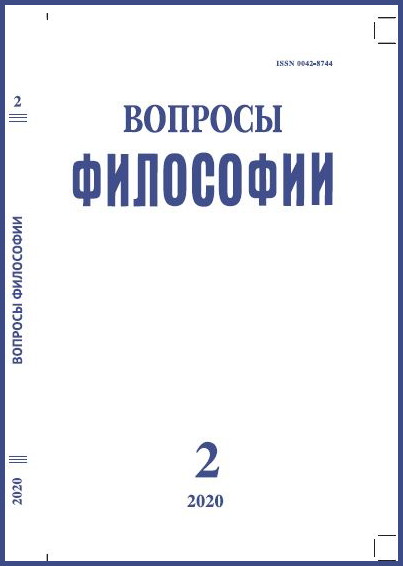rom Play to Universal Ethics: Reflections on Robert Bellah’s Religion in Human Evolution
DOI:
https://doi.org/10.21146/0042-8744-2020-2-98-109Keywords:
religion, evolution, axial age, capacity, play, narrative, mimetic culture, mythic culture, theoretic culture, interdisciplinarity, universal ethics.Abstract
The article discusses the main ideas of Robert Bellah’s “Religion in Human Evolution: from the Paleolithic to the Axial Age”, which recently has been published in Russian. The meaning of the book’s basic concepts – “religion”, “evolution”, and “axial time” – is analyzed. The main principle of the definition of religion by contrasting the world of everyday life to alternative realities is highlighted. Bellah demonstrates connection between the unital, enactive, symbolic, and conceptual ways of representation, which are consistently developed in the history of mankind, and correspond to four historical stages of human culture: episodic, mimetic, mythic (narrative) and speculative (theoretic). The article shows that Bellah associates the emergence and evolution of religion with the evolution of human capacities in the course of the biological and cultural development. The methodological foundations of Bella’s study are considered: firstly, the principle that “nothing is ever lost” in the course of the development of human society; secondly, interdisciplinary approach, and dialogue with representatives of various disciplines concerning the studied areas. The author of the article makes the following conclusion: despite the fact that Bellah’s book describes the distant past of the mankind, it is very up-to-date due to its main thesis: the preserving in a transformed form of all the types of representation, and all previous stages of culture. In addition, Bellah stresses the enormous significance of universal ethics, which is traced back to the axial age and remains the basis of the global cooperation of contemporary humanity.

